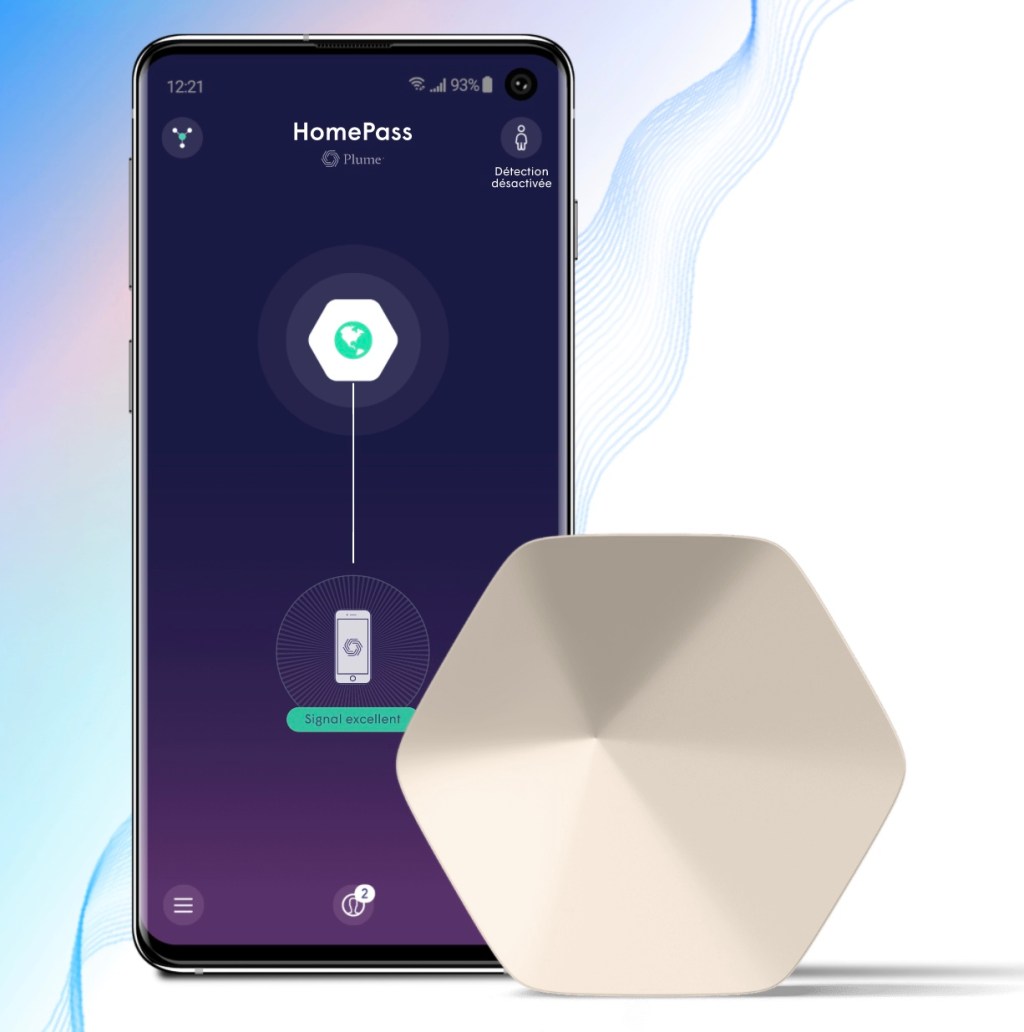Plume — a communications startup that partners with carriers to provide smart mesh Wi-Fi to improve broadband connectivity in homes, and then offers other smart home services on top of that network — has been in the middle of a massive boom in its business fueled by the rapid uptake, use and complete reliance on broadband in the home working as best as it can.
Now it has closed a huge funding round to ride the wave. The Palo Alto-based startup has raised another $300 million led by SoftBank Vision Fund 2 at a valuation of $2.6 billion. Plume’s CEO and founder Fahri Diner said the startup will be using the money to continue building out its software platform, inking and servicing more deals with carriers and generally expanding its horizons.
“Two years ago, the killer app was Wi-Fi, managing the pods,” he said, referring to the system of mesh routers that are used to improve the speed and quality of a Wi-Fi network in homes. “That is no longer it, although it’s still a big piece of it. Access control and device security are growing fast, and people are also engaging with our motion sensors since indoor cameras are going away because of privacy reasons. IOT, health, energy management and home security are all areas we have been testing for two years and they work, so we will be leaning into a lot of stuff.”
Other investors in this latest round were not disclosed but previous backers include a strong mix of strategic and financial investors: Charter Communications, Comcast Cable, Foxconn, Insight Partners, Jackson Square Ventures, Liberty Global Ventures, Presidio Ventures, Qualcomm, Samsung, Service Electric Cablevision, Shaw Ventures, Silicon Valley Bank and UpBeat Venture Partners among them. Insight was the sole backer in its last round, investing $270 million at a $1.35 billion valuation in the startup. The fact that this latest SoftBank-led round is coming just eight months later is a mark of how rapidly Plume’s business has been growing.
Indeed, COVID-19 and the impact it had on how we use our broadband at home has probably been the biggest driver of Plume’s business in the last year.
As more people have been compelled to stay home to work, study and pass the time, the more strain we’ve been putting on those home networks. In some cases, like mine, that strain also quickly led to major cracks: I am myself a Plume user; after trying a number of other things it was the only solution that could get the broadband to work well and reliably in our London Victorian house.
I guess we weren’t the only ones. Plume said that business ballooned in the last two quarters, adding 13 million new households to total 35 million (“more than our biggest customer, Comcast,” Diner pointed out to me); and it added 350 million more devices to its platform, bringing the total to 1.2 billion devices; plus 60 more broadband carrier customers to now total 240 globally (these include cable companies, telcos and wireless carriers that also offer broadband).
It’s also now partnering with those carriers to branch out beyond their own broadband. In an OTT-style play, in the U.K., Plume and Virgin Media are selling HomePass, which includes the Plume pod and software to manage it and run other services, across all of the U.K. (25 million households), regardless of whether Virgin is providing the broadband underpinning the service or not.
All of this is banked around services for consumers and the connected home. These are two areas where the startup will definitely continue to expand its reach, as outlined by the range of managed services Diner said the company has been working on for some time, along with others tapping into the connected home and specifically electronic objects that already have some degree of interfacing with the internet (think here: Plume letting you know when your connected Nespresso machine is about to need cleaning). These are due to start to get rolled out later this year when Plume releases an update of its app.
But further along, the company’s next steps will likely be outside the home, Diner said. One big area where you could see it doing more, for example, is in the area of industrial environments, where there are vast networks of often remote devices that are costly to connect to networks in a reliable way, which also need monitoring — two areas where Plume could figure in the future.
“We might segment the market into residential, business and industrial IoT,” he said. “We have a phenomenal foothold in residential, which we are now moving into small business. Industrial is also in our scope. We have ambitious plans and this financing gives us more capability.” What is not in scope, he added, is enterprise campuses, where often there is already extensive internet wiring and bespoke Wi-Fi solutions that fit into a company’s particular networking and security configurations.
“The pandemic has dramatically accelerated the adoption of digital services, increasing our dependence on smart devices,” said Nagraj Kashyap, managing partner at SoftBank Investment Advisers, who joined the Plume board of directors, in a statement. “Through its innovative cloud data platform, we believe Plume’s consumer-first approach provides customers with reliable connectivity in their homes and beyond. We are pleased to partner with Fahri and the team to support their ambition of reinventing services for smart spaces globally.”































Comment